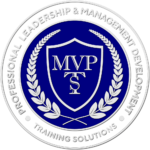Being a leader is not an easy task, and criticism is only one of the many obstacles you will face. Being able to take constructive criticism well is essential for a leader’s professional and personal development. A significant insight into the causes of criticism may be found in the phrase, “Remember, you will never be criticized by those doing more than you, only those doing less.” This essay delves into the intricacies of managing criticism as a leader, identifying the origins of it, and using helpful tactics to transform criticism into an instrument for growth.
The phrase implies that those who may not be at the forefront of successes or duties often provide criticism. This realization challenges leaders to think about the motivations behind criticism and to distinguish between helpful criticism and unjustified hostility. Criticism from people who are not as successful may result from jealousy, insecurity, or ignorance of the difficulties associated with being a leader. Leaders are better equipped to handle criticism with tact and empathy when they know where it came from.
Good leaders know the difference between helpful criticism and baseless accusations. Although it might be easy to brush criticism under the rug, particularly if it seems to come from those who aren’t contributing as much, leaders should deliberately look for any pearls of wisdom that may be there. Constructive criticism may provide insightful information about areas that need work, regardless of where it comes from. In order to advance both personally and professionally, leaders should concentrate on taking constructive criticism and turning it into points of action.
Emotional fortitude is needed to handle criticism. Since leaders are often scrutinized, they must have the capacity to take in criticism without allowing it to erode their self-assurance. Leaders may keep a level-headed attitude by realizing that criticism may originate from a position of personal dissatisfaction or inadequacy rather than a sincere assessment of leadership ability. Leaders with emotional resilience can see criticism not as a personal jab but as a chance for introspection.
Proactive leaders provide an environment where constructive discourse flourishes, feedback is welcomed, and criticism is handled with grace. By encouraging candid communication and modeling humble feedback-taking, leaders create an atmosphere where team members feel free to voice their ideas. With this method, the narrative is changed from criticism being a bad experience to being a valuable instrument for ongoing development.
Criticism is an enduring ally in the leadership path. Criticism may drive progress for leaders who approach it with an awareness of its history, a perceptive eye for insightful observations, emotional fortitude, and a dedication to creating a positive feedback culture. According to a statement, “Remember, you will never be criticized by those doing more than you, only those doing less.” Leaders who adopt this understanding can use criticism as a springboard to improve their effectiveness and resilience in their positions.
MVPTS STAFF
